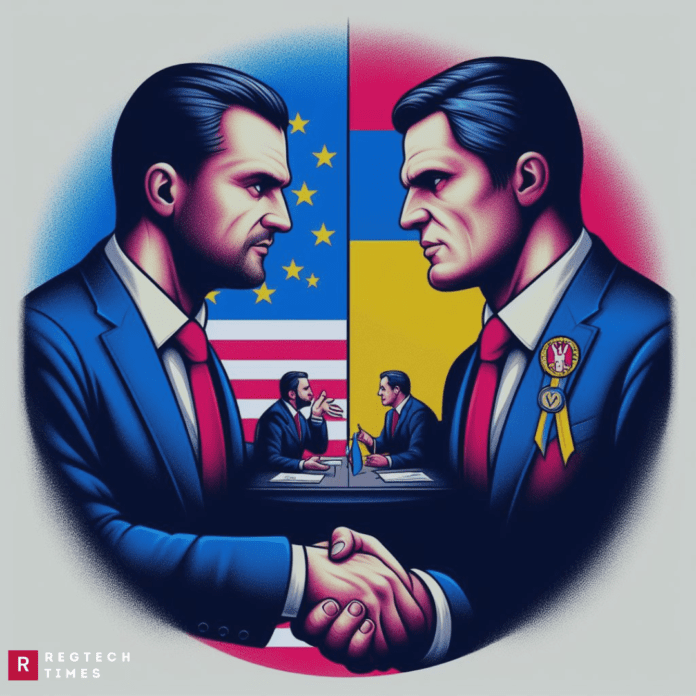The recent meeting between Serbia’s Prime Minister Milos Vucevic and Ukrainian Foreign Minister Dmytro Kuleba underscores the delicate diplomatic balancing act Serbia faces amidst the ongoing conflict between Ukraine and Russia. While reaffirming solidarity with Ukraine, Serbia cautiously refrains from immediate commitment to sanctions against Moscow, navigating a complex web of historical ties, strategic interests, and geopolitical pressures.
This nuanced approach reflects Serbia’s multifaceted foreign policy calculus, where expressions of support for Ukraine are carefully weighed against considerations of maintaining cordial relations with both Western powers and traditional allies in the East. By treading a fine line between upholding principles of international law and safeguarding national interests, Serbia aims to play a constructive role in de-escalating tensions and promoting stability in the region, underscoring its diplomatic agility and strategic foresight amidst the evolving dynamics of Eastern European geopolitics.
Serbia’s Diplomatic Dilemma
In the aftermath of Russia’s incursion into Ukraine in 2022, Serbia’s decision to abstain from aligning with international sanctions against Moscow has cast a shadow over its relationship with Kyiv. This stance has introduced strains and complexities into bilateral relations, as Serbia’s position challenges the expectations of solidarity among nations condemning Russia’s actions. The refusal to endorse sanctions reflects Serbia’s delicate balancing act between its historical ties with Russia and its aspirations for closer integration with Western institutions like the European Union.
Against this backdrop, the visit of Foreign Minister Kuleba to Belgrade assumes significant importance as a potential turning point in the dialogue between Serbia and Ukraine. It offers a crucial opportunity for both nations to engage in constructive discussions aimed at bridging the gap in their perspectives and finding common ground. This meeting serves as a window into the intricate interplay of divergent geopolitical interests and historical legacies that inform the relationship between Serbia and Ukraine. As both countries navigate the complexities of their respective foreign policies, the outcome of this dialogue could have far-reaching implications for regional stability and cooperation in Eastern Europe.
At the helm of Serbia’s foreign policy, President Aleksandar Vucic endeavors to strike a delicate balance between the country’s aspirations for European Union membership and its enduring alliances with Russia and China. Despite the prevalence of pro-Russian sentiments among the Serbian populace, the official recognition of Ukraine’s territorial integrity underscores Serbia’s commitment to upholding international norms and principles.
Serbian Support for Ukraine
Since the outbreak of the conflict, Serbia has taken tangible steps to demonstrate solidarity with Ukraine. From accepting refugees fleeing the conflict to providing humanitarian aid and pledging support for post-war reconstruction efforts, Serbia’s actions reflect a nuanced approach to navigating the complexities of the Ukrainian crisis. However, Serbia’s stance on sanctions remains a contentious issue, posing challenges to its relationship with Kyiv.
Addressing Mental Health Challenges:
Against the backdrop of conflict, the mental well-being of affected populations emerges as a critical concern. Ukraine’s first lady, Olena Zelenska, sheds light on the profound psychological toll of the war during a mental health conference in Belgrade. Collaborative efforts between Zelenska and Serbia’s first lady, Tamara Vucic, underscore the importance of prioritizing mental health support amidst the chaos of conflict and displacement.
Conclusion:
As Serbia grapples with the complexities of geopolitical dynamics and its commitment to international norms, its engagement with Ukraine serves as a litmus test for its diplomatic agility. While navigating the competing interests of European integration and historical alliances, Serbia’s stance on the Ukrainian conflict remains a focal point of its foreign policy agenda. Dialogue and cooperation between Serbia and Ukraine are imperative not only for addressing immediate challenges but also for fostering long-term stability in the region. As the diplomatic dance continues, Serbia’s ability to navigate the intricate web of geopolitical pressures will shape its role in shaping the future of Eastern Europe.


